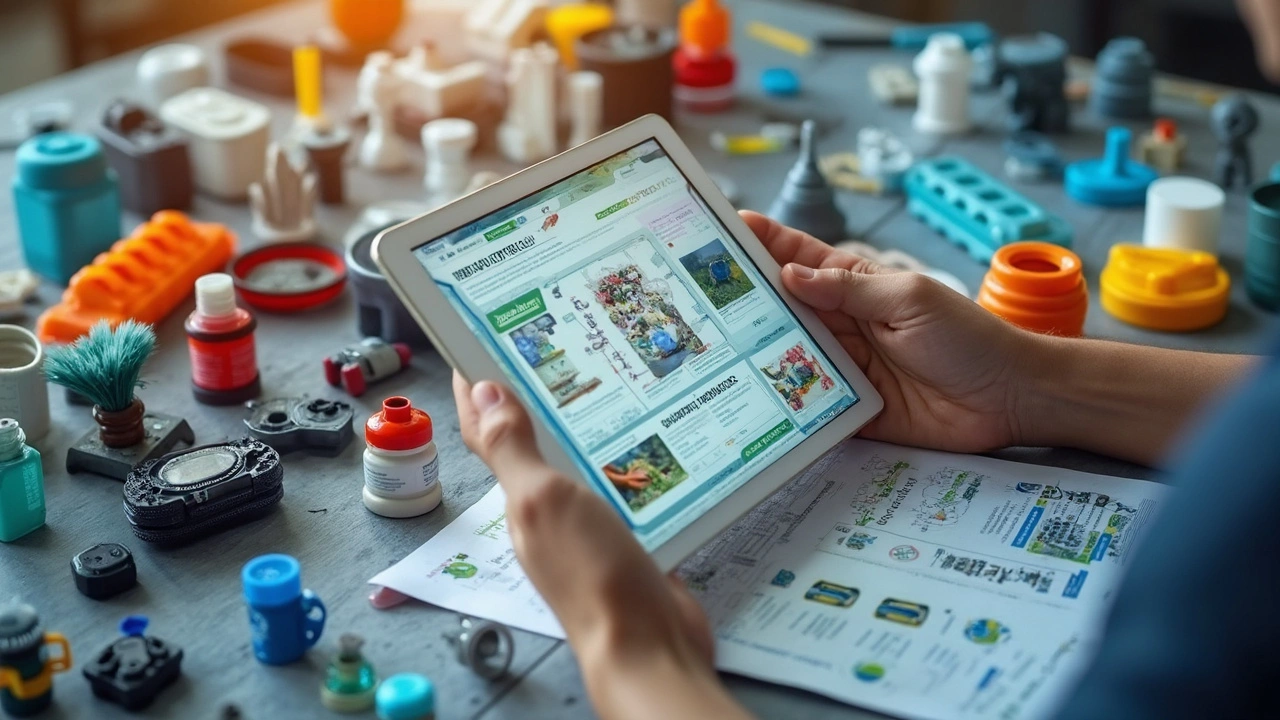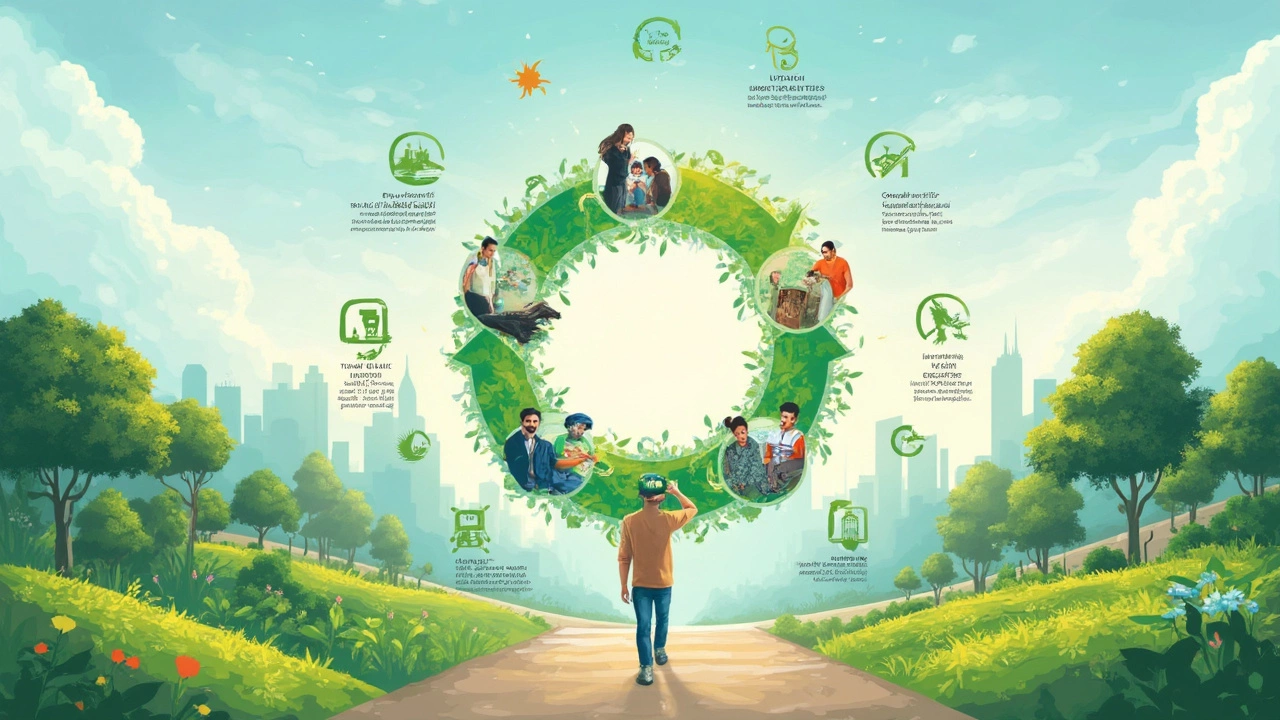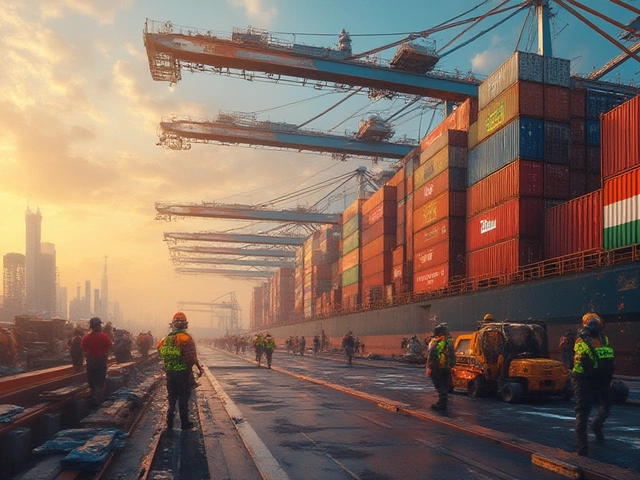Think plastic is just old water bottles and food wrap? Think again. Every piece of tech, medical device, car interior, toothbrush, and nearly everything you touch daily has plastic lurking inside. So, when someone asks, “Which company is best for plastic?” it’s not a small question—it’s actually a monster. From cheap toys to medical-grade polymers, the stakes are high. Waste, pollution, and climate change add a complex twist. Picking the top plastic companies now means caring about not just quality, but also how they treat the planet.
What Makes a Plastic Company Truly Great?
No company wears a crown and rules the plastic world alone. The “best” depends on what you need. Are you building airplane parts? Or do you just want safe packaging for your sandwiches? Some companies own the game in high-tech stuff—think plastics engineered to survive acid or space travel. Others crush it in mass-market stuff like bottles and food containers. A few are racing ahead to be less polluting, solving the world’s plastic problem, or at least pretending to.
The biggest names right now are Dow, LyondellBasell, SABIC, INEOS, and BASF. They’re pumping out millions of tons each year. They supply carmakers, home appliance brands, builders, and even your favorite sneaker company. To see why they matter, check out this quick snapshot:
| Company | Main Products | 2024 Revenue (USD) | Eco Initiatives |
|---|---|---|---|
| Dow | Polyethylene, Packaging, Building Materials | $44B | Advanced recycling tech, Green PE |
| LyondellBasell | Polypropylene, Polymers for Auto/Packaging | $47B | Bioplastics, Circular Economy |
| SABIC | Specialty Plastics, Chemicals | $38B | ISCC+ Certification, Ocean plastics recovery |
| INEOS | Polystyrene, Polyethylene, PVC | $32B | Hydrogen plants, Recycle-ready designs |
| BASF | Engineering Plastics, Polyurethane | $78B | CO2 reduction targets, Compostable plastics |
But here’s what separates a good company from a great one in the plastic business:
- Quality and consistency, measured in how pure and even each batch is.
- Technical support: Do they have geeks ready to help you pick the right material?
- Global presence means faster delivery and fewer headaches if you’re on a tight schedule.
- Sustainability: Are they actually cutting waste, reusing old plastic, or using plant-based materials?
- Price: Sounds boring, but nobody has cash to burn, especially with the crazy price surges post-pandemic.
There are niche giants, too—companies like Eastman innovate engineered plastics for optics and medical gear. Covestro makes insulation foams you’ll find in new homes and bullet trains. Then you have Solvay, which makes aerospace plastics tougher than steel and light as a feather. Still, when it’s time to pick a supplier, check their portfolio, safety record, and if they’ll actually talk to you rather than send you to an endless phone menu. It sounds simple, but fast, human customer service is rare—go for it when you see it.

How Sustainability Is Changing the Plastics Game
Few industries get slammed harder for pollution than plastics. Bags clogging rivers, microplastics in fish, giant garbage islands swirling in the Pacific—plastic grabbed the villain costume and refuses to take it off. But now, with new bans and public backlash, companies know being greener is not just a PR play. It’s survival.
Want an example? LyondellBasell has dumped over $300 million into advanced recycling, turning used plastic back to raw materials. BASF created “compostable” plastics for food wraps—break them down and they vanish. Even the Saudi giant SABIC has a circular polymers program that collects trash right off beaches and transforms it into playground slides and new car bumpers.
Sustainability now measures more than just if your water bottle says “recyclable” on the bottom. Big buyers—like Apple, IKEA, or Nike—demand specific certifications. The hottest label: ISCC+, which means the plastic’s origin, recycling content, and carbon savings are tracked all the way from oil rig to your recycling bin. Look for it on datasheets and contracts—the world’s not settling for greenwashing anymore.
- Dow’s “Project Reflex” recycled over 200,000 tons of plastic waste into new packaging in 2024 alone.
- BASF has partnerships with startup Carbios to create enzymes that shred old bottles into new resin with zero loss of quality.
- SABIC 3D prints construction parts from recycled ocean plastics, making both city planners and turtles happy.
- INEOS trialed hydrogen-fueled production lines to cut fossil energy use by over 40% at its Grangemouth plant.
For regular folks and smaller businesses, these efforts mostly show up in the types of materials available. Bioplastics are showing up in shopping bags, disposable cutlery, and even in premium car interiors. Look, no company is “zero-impact” yet. But if your clients care about green credentials—or if you just don’t want to be part of the problem—track companies with real, published numbers, not just slick promises. See if they list how much recycled plastic they actually used. Some publish these stats monthly; it’s not hard to fact-check anymore.
One tip: European suppliers tend to be further ahead on certified recycled plastics because of stricter EU laws, while U.S. and Asian giants specialize in cutting-edge super-strength materials. Sometimes, the “best plastic company” depends on which side of the ocean you’re standing on.

Tips for Choosing the Right Plastic Supplier for Your Needs
Here’s the thing—if you Google “best plastic company,” you’ll get answers like “the one nearest you” or “the cheapest.” Neither is enough in 2025. Before ordering a single kilogram of resin or a million ready-made bottles, check these tips if you want to avoid regret:
- Define Your Needs: Don't just ask for “plastic.” There are over 70 families of plastic types (PET, HDPE, ABS, PEEK, PC... you get the drift). Medical device makers need FDA-approved grades; car parts may need to handle 120°C; food packaging demands non-leaching safety. Get specific—ask for technical data sheets (TDS).
- Check Certifications: Does the supplier offer proof? Look for ISO 9001 for quality, ISO 14001 for environmental standards, and, if relevant, food/medical or aerospace certs like FDA or AS9100.
- Ask for Samples: Test before you commit. A “transparent” plastic can go yellow in sunlight if it’s low quality, or crack if dropped. Your supplier should send you a sample batch—don’t skip this.
- Trace Their Materials: More clients now want “chain-of-custody” data showing exactly how much recycled or renewable content is in the product. If a supplier dodges this, keep shopping.
- Evaluate Technical Help: Some companies provide in-house tech reps who help optimize your production or solve tricky issues. If you’re new or have tough needs, this is gold.
- Delivery and Lead Times: Since COVID-19, late shipments can wreck entire product launches. Ask about backup stocks nearby, not just plants overseas.
- Price Transparency: Demand clear pricing and volume discounts. Watch for hidden fees on color matching or specialty grades.
It really comes down to partnership, not just price. Some of the best relationships in this industry last decades because companies invest in you, solve problems, or even help retool when industry rules change. For instance, Eastman quietly pivoted to recycled PCTG for reusable water bottles when U.S. states started banning single-use stuff. That’s not just smart business—it’s helping you stay ahead of the law (and keep customers happy).
Also, don’t ignore startups and local players. There’s a wave of new manufacturers laser-focused on unique needs—think bio-based PLA for vegan food brands, or fire-resistant ABS for next-gen battery packs. Sometimes these “smaller” companies respond faster and bend further to help your niche need. The trade-off: bigger guys offer lower prices if you’re ordering trainloads at a time.
One little-known detail—plastic suppliers are often happy to renegotiate rates if you sign multi-year, not one-time, deals. In 2025’s market volatility, locking your price for a year or two can save you from insane spikes if oil or shipping costs go wild again. Just don’t rush—do your homework first, talk to customers who’ve used their materials, and always get stuff in writing.
At the heart of it, the best plastic company for you is one that matches your technical specs, doesn’t trash the environment, and treats you like a partner, not a number. In a world that’s plastic-wrapped from phones to cars, that match is more important than ever.





Write a comment